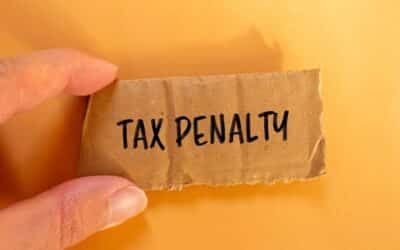Question: My widowed father recently died and failed to designate myself nor any of my siblings as beneficiaries of his IRA. Is there an opportunity to have these funds paid out over a prolonged period of time and avoid the five-year payout period?
Answer: While the tax planning could have been better, depending on when your father passed, there may be some options for a favorable outcome. A key question is whether your father died before or after the date your father was required to commence distributions from his IRA. With some exceptions, IRA distributions must commence by April 1 of the calendar year following the calendar year in which your father attained age 73.
The better result will be achieved if your father died after his required beginning date. In this case, your father’s IRA can be paid to the beneficiaries over your father’s remaining life expectancy on an annual basis.
Recent retirement plan legislation and proposed IRS Treasury Regulations, with some exceptions, require payouts from qualified retirement plans and IRAs to be made over a ten-year period. But due to an anomaly in the Regulations, the payout period to a non-designated beneficiary for an IRA whose owner has reached his required beginning date is based on the the deceased IRA owner’s remaining life expectancy. Depending on the decedent’s age at the time of death, this may allow for a distribution to be made over a period longer than ten years. In such cases, the failure to designate a beneficiary works to the advantage of the non-designated beneficiaries if the decedent’s life expectancy is longer than the ten-years, assuming a longer payout period is desired.
The result is much worse if the decedent died before his required beginning date. In this case, distributions must be made using the dreaded five-year rule which requires all of the decedent’s IRA funds to be paid out on or before December 31 of the fifth year following the year of death. Unlike the payout rules for IRA owners who have reached their required beginning date, there is some flexibility in determining when the payout must be made under the five-year rule. As noted above, in the case of distributions from an IRA owner who has reached his required beginning date, distributions must be made annually. The five-year rule, however, only mandates that distributions be made by the end of the fifth year following the year of death. So, in that case, distributions can be made annually, less frequently, more frequently or over whenever desired so long the decedent’s IRA funds are distributed in full by the magical date, December 31 of the fifth year following the year of the decedent’s death.
Regardless of when your father passed, there will be some complicating factors due to his failure to designate a beneficiary. You must first review the IRA plan documentation to determine the persons to whom the benefits will be paid. Most and perhaps all IRA documents provide that the IRA funds of a decedent pass to the decedent’s estate in the absence of a beneficiary designation on file. In such case, probate proceedings may be necessary to enable the decedent’s estate to receive the decedent’s IRA assets.
Although probate proceedings may be necessary, each beneficiary of an estate can open an IRA account, known as an inherited IRA, and the IRA assets can be distributed to each beneficiary’s inherited IRA. While the need to open a probate estate is unfortunate, by using the inherited IRA option, the probate estate can be closed after all of the assets from the IRA have been transferred to the beneficiaries’ inherited IRAs, thereby avoiding the need to maintain the estate in existence until all of the assets are fully distributed from the IRA.
Tax legislation in recent years has no doubt complicated the IRA distribution world. By carefully navigating the distribution rules, you may nevertheless be able to accomplish some tax saving objectives despite your father’s failure to designate a beneficiary of his IRA.
The Tax Corner addresses various tax, estate, asset protection and other business matters. Should you have any questions regarding the subject matter or if you have questions, you want answered, you may contact Bruce at (312) 648-2300 or send an e-mail to [email protected].


